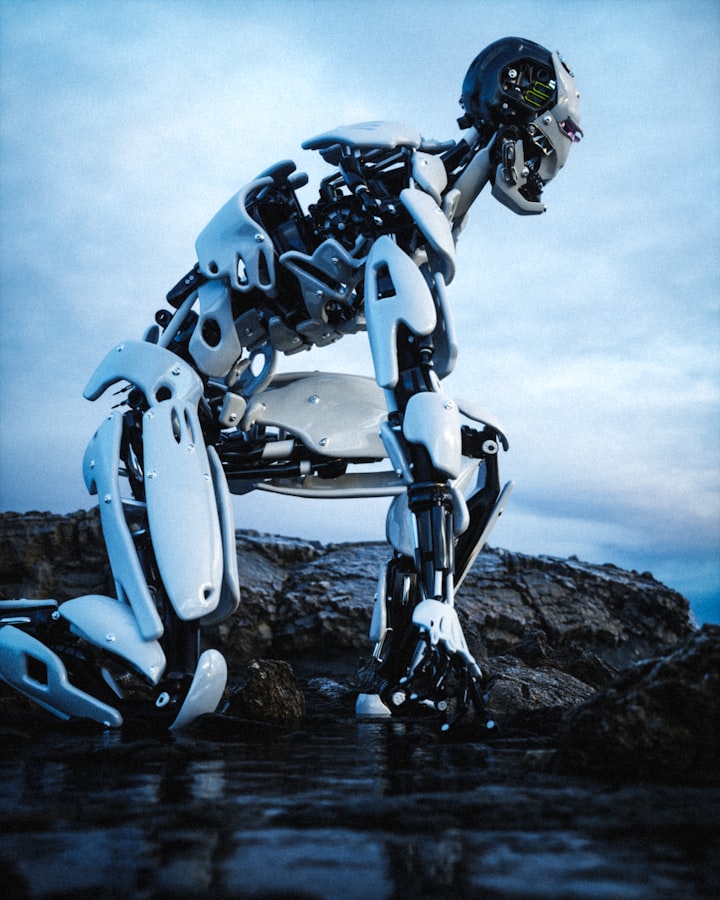Future industries with "AI"
Future Industries

Artificial intelligence (AI) is the simulation of human intelligence processes by computer systems. It is being used in various industries to automate repetitive tasks, make better decisions, and improve overall efficiency.
One of the main applications of AI in industry is automation. In manufacturing, for example, AI can be used to control robots and automate repetitive tasks, such as assembly line work. In logistics, AI can be used to optimize delivery routes and predict demand for products. In healthcare, AI can be used to analyze medical imaging and assist with diagnosis.
AI is also being used to make better decisions in various industries. In finance, for example, AI can be used to analyze large amounts of financial data and identify trends and patterns. In retail, AI can be used to predict customer demand and optimize inventory. In agriculture, AI can be used to optimize crop yields and predict weather patterns.
AI is also being used to improve overall efficiency in various industries. In customer service, for example, AI can be used to provide quick and accurate responses to customer inquiries. In energy, AI can be used to optimize energy consumption and reduce waste.
However, there are also potential implications of AI that need to be considered. One of the main concerns is the potential for job displacement as AI automates repetitive tasks. Another concern is the lack of transparency and accountability in AI systems, which could lead to biased or unfair decisions. There is also a concern about privacy and security as AI systems process and store large amounts of personal data.
Overall, AI has the potential to revolutionize various industries and improve efficiency, but it's important to consider the potential implications and work on solutions to mitigate them. Ethical considerations and regulations need to be put in place to ensure the responsible use of AI.
Artificial intelligence (AI) is the simulation of human intelligence processes by computer systems, and it's being used in various industries to automate repetitive tasks, make better decisions, and improve overall efficiency.
One of the main applications of AI in industry is automation. In manufacturing, for example, AI can be used to control robots and automate repetitive tasks, such as assembly line work. This can lead to increased productivity, reduced labor costs, and improved product quality. In logistics, AI can be used to optimize delivery routes and predict demand for products. This can lead to improved delivery times, reduced transportation costs, and better inventory management. In healthcare, AI can be used to analyze medical imaging and assist with diagnosis. This can lead to faster and more accurate diagnosis, improved patient outcomes, and reduced healthcare costs.
AI is also being used to make better decisions in various industries. In finance, for example, AI can be used to analyze large amounts of financial data and identify trends and patterns. This can lead to improved investment decisions, reduced risk, and increased returns. In retail, AI can be used to predict customer demand and optimize inventory. This can lead to improved customer satisfaction and increased sales. In agriculture, AI can be used to optimize crop yields and predict weather patterns. This can lead to improved crop yields, reduced water usage, and better food security.
AI is also being used to improve overall efficiency in various industries. In customer service, for example, AI can be used to provide quick and accurate responses to customer inquiries. This can lead to improved customer satisfaction and reduced support costs. In energy, AI can be used to optimize energy consumption and reduce waste. This can lead to reduced energy costs, improved energy efficiency, and lower carbon emissions.
However, there are also potential negative effects of AI that need to be considered. One of the main concerns is the potential for job displacement as AI automates repetitive tasks. This could lead to unemployment and the need for retraining for those whose jobs are replaced by AI. Another concern is the lack of transparency and accountability in AI systems, which could lead to biased or unfair decisions. This could lead to discrimination and loss of trust in the systems. There is also a concern about privacy and security as AI systems process and store large amounts of personal data. This could lead to data breaches and loss of personal information.
Overall, AI has the potential to revolutionize various industries and improve efficiency, but it's important to consider the potential negative effects and work on solutions to mitigate them. Ethical considerations and regulations need to be put in place to ensure the responsible use of AI. The effects of AI on society and economy need to be monitored and addressed.





Comments (1)
Good